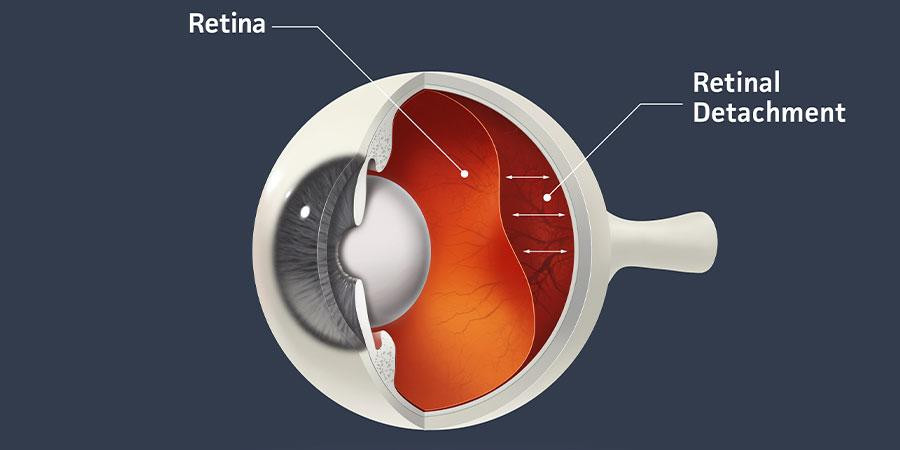Retinal detachment is a serious eye condition in which the light-sensitive layer of tissue at the back of the eye, known as the retina, pulls away or becomes detached from its normal position within the eye. The retina is responsible for capturing light and sending visual signals to the brain via the optic nerve, allowing us to see. When retinal detachment occurs, it can lead to vision loss if not promptly treated.
There are three main types of retinal detachment:
1. **Rhegmatogenous Retinal Detachment**: This is the most common type of retinal detachment. It occurs when a tear or hole develops in the retina, allowing fluid from the vitreous gel (the gel-like substance that fills the eye) to flow through the opening and accumulate behind the retina. As the fluid accumulates, it separates the retina from the underlying tissues, causing detachment.
2. **Tractional Retinal Detachment**: This type of detachment occurs when scar tissue on the retina's surface contracts and pulls the retina away from the underlying tissue. This can be a result of conditions like diabetic retinopathy or other diseases that cause abnormal blood vessel growth on the retina.
3. **Exudative (or Serous) Retinal Detachment**: This type is caused by the accumulation of fluid beneath the retina, often due to leakage from blood vessels or inflammatory conditions. It is less common than the other types of detachment.
Retinal detachment is a medical emergency and requires immediate attention from an eye care professional. Symptoms of retinal detachment can include:
- The sudden appearance of floaters (small, dark spots or specks) in your vision.
- Flashes of light in your vision.
- A curtain-like shadow or veil that moves across your field of vision.
- A sudden decrease in vision or distortion.
- An overall feeling that something is wrong with your vision.
Risk factors for retinal detachment include:
- Age: The risk increases with age.
- Previous eye surgeries or injuries.
- A family history of retinal detachment.
- Nearsightedness (myopia).
- Certain eye diseases, such as lattice degeneration.
- Previous retinal detachment in one eye increases the risk for the other eye.
If you experience any of the symptoms associated with retinal detachment, it's crucial to seek immediate medical attention to prevent permanent vision loss. Retinal detachment is typically treated with surgical procedures aimed at reattaching the retina and preventing further detachment. The choice of treatment depends on the type and severity of the detachment.
For more eye-related queries, Consult Dr. Vaidya at one of the best Eye Specialist in Andheri and know more information visit in our hospital at Dr. Vaidya Eye Hospital.

